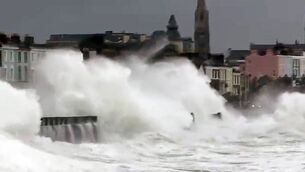Clinton 'not confident' in Good Friday deal, says Paisley jnr
Bill Clinton’s decision to pull out of a Belfast conference marking the 10th anniversary of the Good Friday Agreement is a vote of no confidence in it, a leading unionist claimed today.
Following the announcement by the US Ireland Alliance that the former US president had withdrawn from the event next month because of changes to his schedule, Democratic Unionist Ian Paisley Junior claimed it was recognition by him that the accord was flawed.













